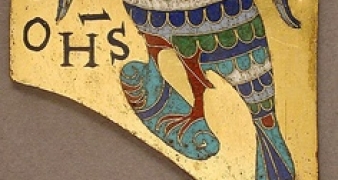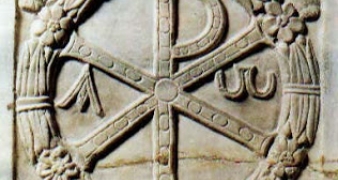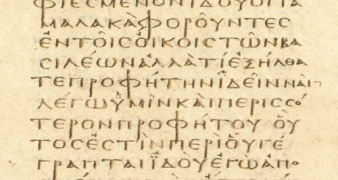At the Introduction to the New Testament I course we present the conditions and the circumstances regarding the formation of the synoptic traditions, we introduce the attendee into the substance of the synoptic problems and their possible solutions.
Course catalogue
|
Dezső Kállay · Cred 4 · Sem 1 · Őszi |
Dezső Kállay · Cred 4 · Sem 2 · Tavaszi At the Introduction to the New Testament II course we present the literary history (author, addressee, where, when and the circumstances in which they were written, the reason for why they were written, the literary unity and their structure) of the gospel according to John, of the Acts of the Apostles and of the early letters of Paul written to the congregation (1,2 Tessalonians, 1,2 Corinthians), their main content, the most representative theological themes and motifs. |
|
Dezső Kállay · Cred 4 · Sem 3 · Őszi At the Introduction to the New Testament III course we present the literary history (author, addressee, where, when and the circumstances in which they were written, the reason for why they were written, the literary unity and their structure) of the letters of Paul written to the Galatians, Romans, Philippians, Colossians, Ephesians and the Pastoral epistles, their main content, the most representative theological themes and motifs. |
Dezső Kállay · Cred 4 · Sem 4 · Tavaszi At the Introduction to the New Testament IV course we present the literary history aspects (author, addressee, where, when and the circumstances in which they were written, the reason for why they were written, the literary unity and their structure) of the letter written to the Jews, of the General epistles, as well as of the book of Revelation, their main content, their most representative theological themes and motifs. |
|
Dezső Kállay · Cred 4 · Sem 6 · Tavaszi The Methodology of New Testament Exegesis presents those steps which helps us to get closer to a defined meaning regarding the New Testament texts. It enumerates those specific tools without the partial tasks, that are meant to aid the comprehension process, cannot be completed: the most reliable documents regarding the original text and the aiding tools for their comprehension like dictionaries, cyclopedias, grammar, comments, monographs and studies. |




